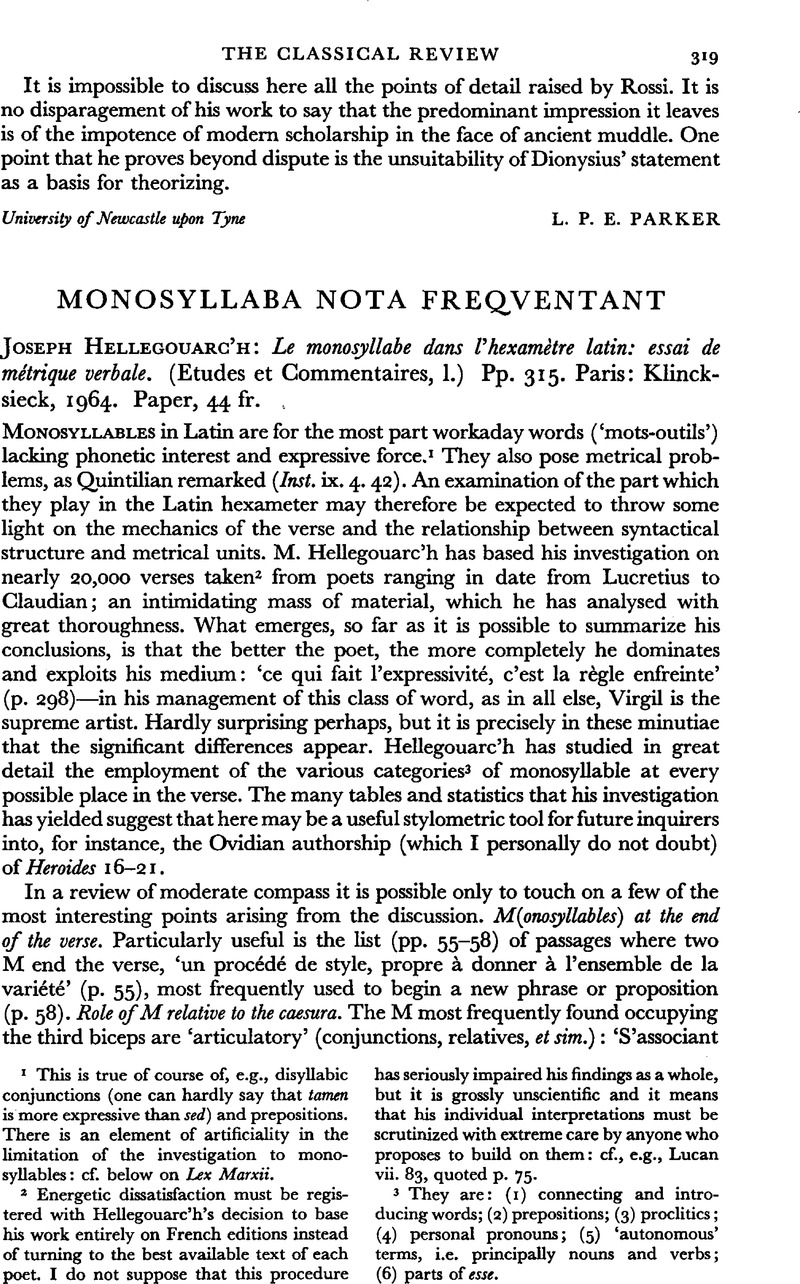No CrossRef data available.
Article contents
Monosyllaba Nota Freqventant - Joseph Hellegouarc'h: Le monosyllabe dans l'hexamètre latin: essai de métrique verbale. (Etudes et Commentaires, I.) Pp. 315. Paris: Klincksieck, 1964. Paper, 44 fr.
Published online by Cambridge University Press: 27 February 2009
Abstract

- Type
- Reviews
- Information
- Copyright
- Copyright © The Classical Association 1965
References
page 319 note 1 This is true of course of, e.g., disyllabic conjunctions (one can hardly say that tamen is more expressive than sed) and prepositions. There is an element of artificiality in the limitation of the investigation to mono-syllables: cf. below on Lex Marxii.
page 319 note 2 Energetic dissatisfaction must be registered with Hellegouarc'h's decision to base his work entirely on French editions instead of turning to the best available text of each poet. I do not suppose that this procedure has seriously impaired his findings as a whole, but it is grossly unscientific and it means that his individual interpretations must be scrutinized with extreme care by anyone who proposes to build on them: cf., e.g., Lucan vii. 83, quoted p. 75.
page 319 note 3 They are: (1) connecting and introduring words; (2) prepositions; (3) proclitics; (4) personal pronouns; (5) ‘autonomous’ terms, i.e. principally nouns and verbs; (6) parts of esse.
page 320 note 2 An excellent point, which cannot be made too often. One of the great merits of Hellegouarc'h's book is that it constantly reminds us that the ancient poets did not rely on punctuation marks to shape their utterance.




